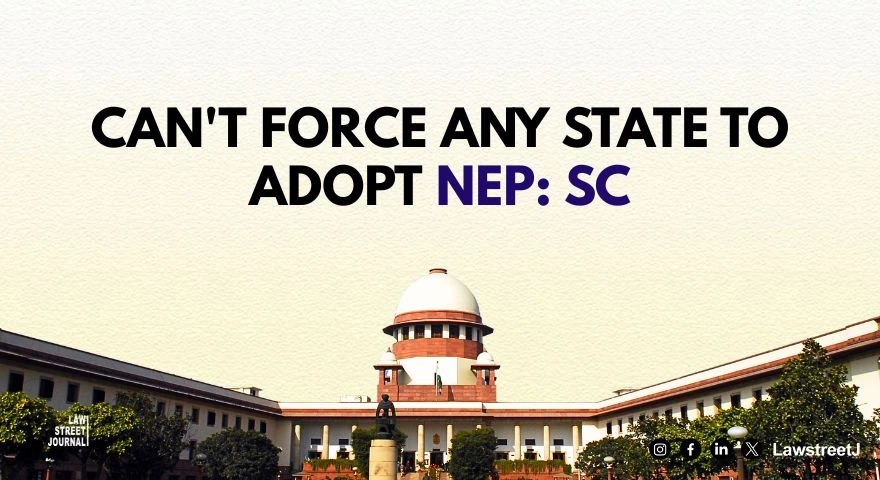NEW DELHI: The Supreme Court on Friday declined to consider a PIL seeking direction to Opposition ruled Tamil Nadu, West Bengal and Kerala governments to implement National Education Policy, holding that court could not compel any state to adopt it.
"Sorry, we can't pass any order. court. We cannot directly compel a state to adopt a policy like the National Education Policy 2020," a bench of Justices J B Pardiwala and R Mahadevan told petitioner advocate G S Mani.
The bench said, if a state's action or inaction related to the National Education Policy violated any fundamental rights, then it will intervene.
"We do not propose to examine this issue in this writ petition. We believe that the petitioner has nothing to do with the cause he proposes to espouse. Although he may be from the state of Tamil Nadu, yet on his own admission, he is residing in New Delhi. In such circumstances, this petition stands dismissed," the court said.
The lawyer from Tamil Nadu and BJP leader, Mani filed the PIL in the Supreme Court seeking a direction to implement the Central Government's NEP, tri-language curriculum policy in Tamil Nadu, Kerala and West Bengal.
He asked the Supreme Court to intervene in this matter and issue an order to the three state governments to immediately implement the central government's National Education Policy, and the trilingual curriculum.
He claimed all the state governments except Tamil Nadu, Kerala and West Bengal have adopted and implemented the central government's most important national education policy, the Tri-Language Curriculum Policy.
The Chief Ministers of Tamil Nadu, Kerala and West Bengal have continuously opposed the central government's NEP and stated that they cannot accept it.
"The NEP is a major education policy plan brought by the Central Government with the aim of improving the quality of school education for students from all walks of life. All Indian languages should be taught free of cost to school children belonging to the poor, scheduled, tribes, backward, and the most backward classes children," the plea said.
The state governments of Tamil Nadu, Kerala and West Bengal refused to accept this noble plan for political reasons, citing the false reason of imposing Hindi.
The central government's laws, plans and policies are applicable to all state governments. It is the duty of the state government to implement such a policy. This is a fundamental duty and right given in the Constitution, he said.
"Free education is a fundamental right given by the Constitution," the plea said.
The petition stated that by refusing to accept this plan, the state government is denying the fundamental right of free education to the school children concerned.
Therefore, the Supreme Court should intervene in this matter and issue an order to these three state governments to immediately implement the Central Government's National Education Policy, the Trilingual Curriculum.

















